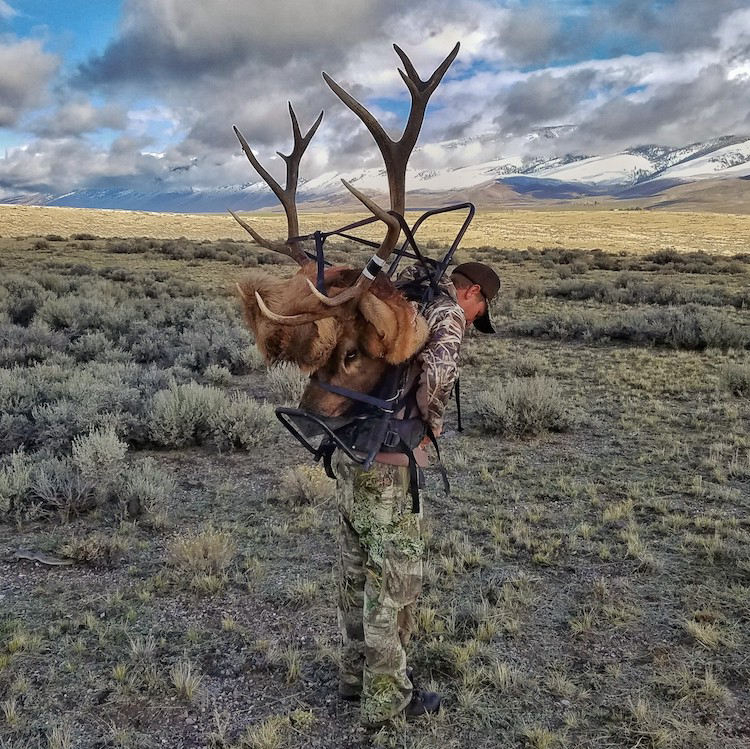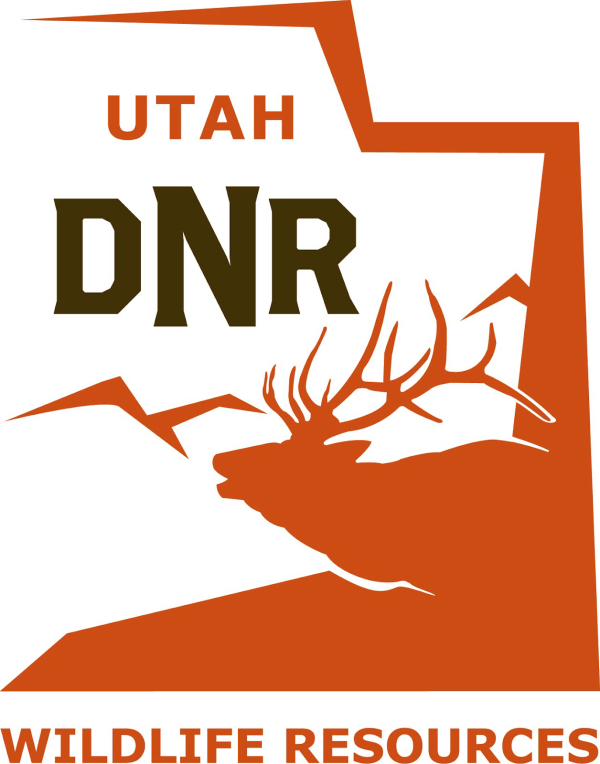An Interview with Kendall Jones
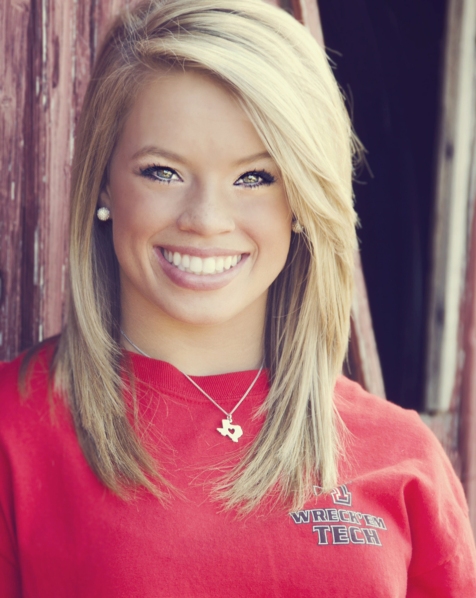 If you’ve turned on the TV, radio, looked at a newspaper, or used the internet in these past few weeks, you have heard of Kendall Jones.
If you’ve turned on the TV, radio, looked at a newspaper, or used the internet in these past few weeks, you have heard of Kendall Jones.
Kendall Jones is a 19 year old cheerleader studying at Texas Tech who has stirred up some recent controversy. She is a seasoned hunter that has been lucky enough to travel to Africa to hunt the big five; work alongside organizations to provide meat to local communities and help treat wounded animals. Recently, she has been targeted on social media sites and attacked by news agencies for having pictures of her hunts published on Facebook. There has been much misinformation spreading around about what she has hunted and the specific role hunting plays in conservation. Bill McGrath, SCI’s Legislative Counsel was fortunate enough to sit down with Kendall to discuss the media backlash and correctly set the narrative.
Bill: Hi Kendall, thanks for taking the time to speak with me. I know you’ve been under the public microscope recently and have taken criticism for your Facebook posts. What has been your experience with the hundreds of negative posts about you and how do you feel about it?
Kendall: Thank you for having me! I think it’s very hurtful and it pains me just as much as anybody to be called those names. It’s rather concerning to see people condemn the taken life of an animal and in the next breath wish to see me dead. I just don’t see the logic in it. I’m all for differing opinions. It’s a positive thing that encourages dialogue about conservation but the reaction from those people only shuts down discourse and that impedes progress. If you disagree with me don’t yell and call me names but bring forth research and logical arguments. I believe in hunting and I believe in conservation, the death threats and cruel people won’t sway me.
Bill: Along with the social media comments, you have also been attacked by some animal rights groups, specifically by Jeffrey Flocken from the International Fund for Animal Welfare. He says, “Hopefully, the small number of Americans who still revel in this kind of vainglorious exploitation and killing of living things for fun will disappear before all the animals do.” Kind of ominous. What’s your response to that?
Kendall: I find it odd that only women have been targeted by these organizations. Why would these huge, powerful organizations go after me, a woman, a minority in the hunting community and attack me with their anti-hunting rhetoric? I am not the first to go on African safaris yet these groups attack me nonetheless. As for Mr. Flocken, I think it’s rather low to stoop down to that level and wish for me to “disappear.” Is this who represents animal rights? Not only is his article insulting, it is embarrassingly inaccurate. Within his own article he contradicts himself. He is wrong in implying that black rhino population numbers are decreasing when they’re not. Namibia breeds rhinos and protects them. They have 35% of the rhinos in Africa! I’m all for listening to the other side’s ideas and opinions, but the fact that someone can so comfortably manipulate information and lie so blatantly on this heated issue simply boggles me.
Bill: Most non-hunters do not understand how hunting an animal makes someone a conservationist. You’ve been an active conservationist for most of your life. Can you expand on how hunting actually benefits multiple species??
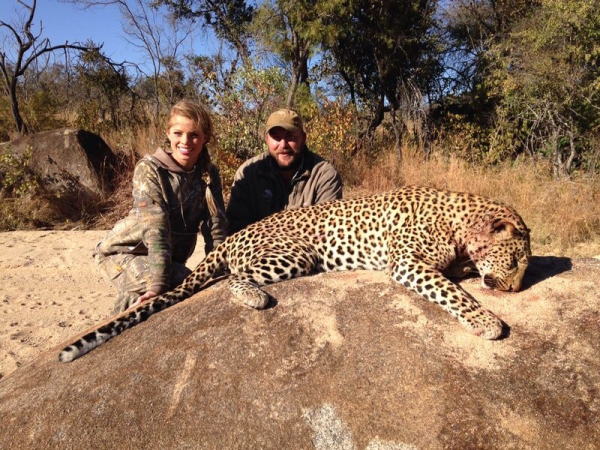 Kendall: Yes, I am a hunter, but I’m a conservationist first and foremost. People like to jump to conclusions and most of the time it isn’t their fault. Most people don’t understand that hunting is and always will be a useful tool for conservation. Many fail to account for the strict regulations that are involved with legal hunts. When I travel to Africa to hunt, I have to pay a tag fee for the specific species I plan to take. If the game population in that country cannot sustain a hunt, hunters will not be granted a tag. The money from these tag fees goes directly to the local communities to fund anti-poaching efforts, research and other conservation initiatives..
Kendall: Yes, I am a hunter, but I’m a conservationist first and foremost. People like to jump to conclusions and most of the time it isn’t their fault. Most people don’t understand that hunting is and always will be a useful tool for conservation. Many fail to account for the strict regulations that are involved with legal hunts. When I travel to Africa to hunt, I have to pay a tag fee for the specific species I plan to take. If the game population in that country cannot sustain a hunt, hunters will not be granted a tag. The money from these tag fees goes directly to the local communities to fund anti-poaching efforts, research and other conservation initiatives..
Bill: Could you explain a little more about the conservation aspect?
Kendall: Sure. Conservation groups breed endangered species to increase their numbers. Take Namibia for example. They only permit the hunting of 5 rhinos a year. Normally these are rhinos that are old and no longer able to reproduce, sick, or too dangerous to coexist with the other rhinos. Namibia has seen great success in increasing their numbers and now hosts 1,750 of the roughly 5,000 black rhinos surviving in the wild. Hunters provide an estimated $200 million annually to the overall African economy. In the most rural areas, where many of these hunts take place, the land is too dry to accommodate agriculture and too isolated to sustain eco-tourism, but hunting provides employment opportunities and many communities depend on these hunting safaris to make a living.
Bill: You pose with your kills but then go on to say that you love animals. Can a hunter truly love animals if they’re willing to take its life for sport?
Kendall: I do love animals. As hunters, we have a deep appreciation for the game we hunt but also understand that hunting contributes to the prolonged existence of game species. Modern conservation is about reducing population risks, maintaining habitat and ensuring that species are sustainable for the future. Hunting does that. I understand that the photos might be a little unnerving to the inexperienced hunter or misinformed public, but they are simply documentation of my experiences. My “menacing smile” as CNN called it, is not because I am happy about the death of a magnificent creature, but because I know that I am contributing to the betterment of the species and that I am providing much needed funding for conservation as a whole. I am actually doing something for the overall benefit of the animals I care about and I’m proud of that.
Bill: It seems like cheating though to harvest an animal just to be hunted in a confined space. Do you consider that hunting?
Kendall: I’m happy you brought that up actually. This is another misconception people seem to have. Africa is very big. It’s the second largest continent with over 20% of the world’s total landmass. The hunting reserves where the animals are harvested are by no means small but rather enormous tracks of lands where the animals roam free. The size of the parks are normally well over 3,000 sq mi and the animals live normal and happy lives. The hunts do not take place in close range. Hunters have to actively track, chase, and engage the animal in order to have a successful hunt. It is dangerous, life-risking and difficult.
Bill: Many people are against the sport. They disagree with it fundamentally. Many people on Facebook have worded, albeit strongly, their disfavor of it. So, how do you compare hunting to other sports, and how do you justify it?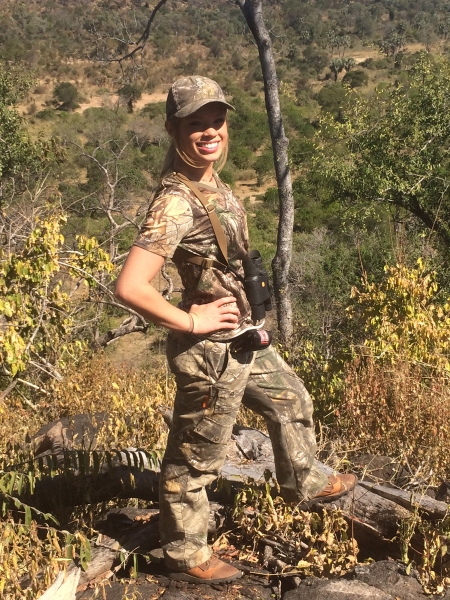
Kendall: I have a hard time with the word “Justify” because it implies I am doing something wrong and have to make excuses for my actions. Hunting isn’t a sport for everyone and I acknowledge that. The issue here is miscommunication. People can’t connect hunting and conservation. But the reality of it is photo-safaris, donations, and other means of revenue just don’t match up to the money conservation groups make from hunting. Hunters can engage in their favorite pastime and conservationists can continue their positive work. We should be partners not enemies. I am confident that once the people on Facebook and Twitter understand this there will be less hate and more cooperation.
Bill: There is a video on your page that shows a group of people picking up the meat from one your hunts. Did you really donate that food? How many people did that help?
Kendall: Yes, in that video I had hunted an elephant. That one hunt fed more than 100 families. If more people hunted and gave away meat like I did, hundreds or even thousands of people in Africa could be fed as a byproduct of hunting.
Bill: Let’s talk about the hunting itself. Why do you like it so much?
Kendall: I like hunting because of the challenge and mental strength needed to track and engage the animal. Like I mentioned earlier, it is dangerous and difficult. Hunting is no easy feat. It takes a lot of physical strength and endurance to be a hunter. It also takes a lot of patience and skill to operate a rifle and even more to operate a bow. It’s a very connected and even spiritual experience and you learn a lot from yourself. It’s definitely helped me grow as a person. I love hunting and believe in it and would love if more people were engaged in it. Apart from that I like it because it is a useful tool. I’m a huge fan of The Walking Dead. If that ever happened in real life, I’d feel confident in my abilities to survive!
Bill: Ok. Enough time on the hot seat. Let’s talk about you. You’re a university student, involved in extracurricular activities, and a cheerleader. All pretty normal college activities. But you’re also a seasoned hunter? How did that happen? Could you talk about how your love for hunting came to be?
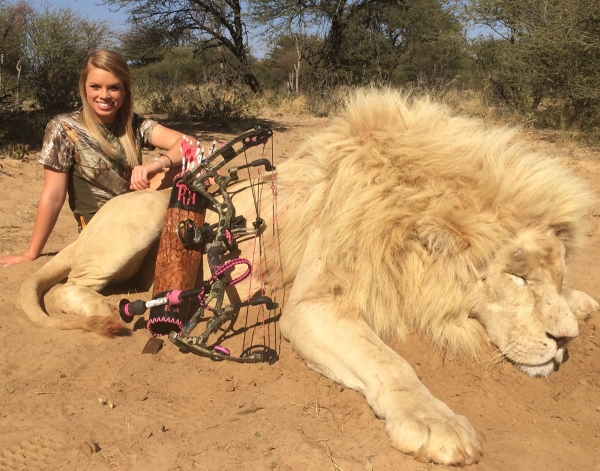 Kendall: Sure! I grew up in Cleburne, Texas. My dad would take me with him on all his hunts. By age 9, I had gone to Zimbabwe in Africa with my family and watched my dad hunt the big five. While there, I became fascinated with the African culture. With the help of my family, we visited elementary schools to deliver candy, books, and soccer balls to the under privileged children. This opened my eyes to the realities of the world, and the experience made me grow compassionate and made me care for those in need. Continuing with that compassionate attitude is why I donate my game meat to the local villages.
Kendall: Sure! I grew up in Cleburne, Texas. My dad would take me with him on all his hunts. By age 9, I had gone to Zimbabwe in Africa with my family and watched my dad hunt the big five. While there, I became fascinated with the African culture. With the help of my family, we visited elementary schools to deliver candy, books, and soccer balls to the under privileged children. This opened my eyes to the realities of the world, and the experience made me grow compassionate and made me care for those in need. Continuing with that compassionate attitude is why I donate my game meat to the local villages.
Bill: Well thank you so much for your time Kendall, we wish you well and good luck with your future endeavors. I hope it this helps reduce the misinformation and shows to the other side the benefits of having hunting as a tool for conservation.




